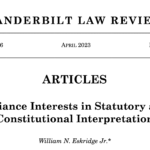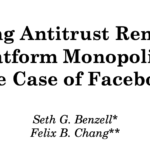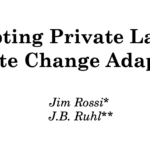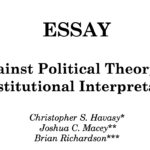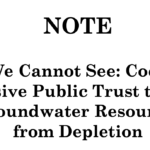Volume 76, Number 3 Category
Reliance Interests in Statutory and Constitutional Interpretation
Apr. 26, 2023—William N. Eskridge Jr. | 76 Vand. L. Rev. 681 People and companies rely on public law when they plan their activities; society relies on legal entitlements when it adapts to new technology, economic conditions, and social groups; legislators, administrators, and judges rely on settled law when they pass, implement, and interpret statutes (respectively). Such...
Evaluating Antitrust Remedies for Platform Monopolies: The Case of Facebook
Apr. 26, 2023—Seth G. Benzell & Felix B. Chang | 76 Vand. L. Rev. 773 This Article advances a framework to assess antitrust remedies and policy interventions for platform monopolies. As prosecutors and regulators barrel forward against digital platforms, soon it will fall upon courts and administrative agencies to devise remedies. We argue that any sensible solution...
Adapting Private Law for Climate Change Adaptation
Apr. 26, 2023—Jim Rossi & J.B. Ruhl | 76 Vand. L. Rev. 827 | The private law of torts, property, and contracts will and should play an important role in resolving disputes regarding how private individuals and entities respond to and manage the harms of climate change that cannot be avoided through mitigation (known in climate change...
Against Political Theory in Constitutional Interpretation
Apr. 26, 2023—Christopher S. Havasy, Joshua C. Macey & Brian Richardson | 76 Vand. L. Rev. 899 Judges and academics have long relied on the work of a small number of Enlightenment political theorists—particularly Locke, Montesquieu, and Blackstone—to discern meaning from vague and ambiguous constitutional provisions. This Essay cautions that Enlightenment political theory should rarely, if ever,...
Water We Cannot See: Codifying a Progressive Public Trust to Protect Groundwater Resources from Depletion
Apr. 26, 2023—Susan Emily Ness | 76 Vand. L. Rev. 953 Groundwater provides a vital water supply and plays an integral role in hydrological systems by supporting biodiversity and the overall health and functioning of surface waters. Yet, the current legal landscape in the United States premises groundwater management on outdated scientific understandings of hydrology and fails...
